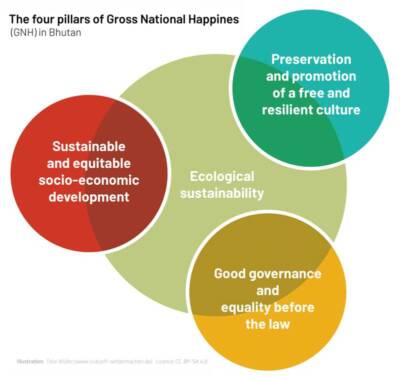America’s obsession with fun as a national goal needs to be tempered with some moral realism.
Fantasy, like a coin, has two sides: one positive and Utopian (Freud’s wish-fulfillment, Thurber’s “Walter Mitty”); the other, negative and dystopian (Orwell’s 1984, the Former’s fondness, even “love,” for monomaniacs and dictators.

It’s too easy for one possibility to flip to the other side like a manic-depressive tidily-wink: the obverse of entertainment turns into the reverse of deprivation and punishment.
America may be the only country ever to exist that believes in fun as a national goal, though Bhutan does have a Gross National Happiness Index by which its government means “well-being,” not “have a good one!”
We have the “Happy Hour,” “Happy Days Are Here Again,” Abbot and Costello, Robin Williams (sadly, both sides), Comedy Network, and, of course, Disney World.
I’m not against fun, though I haven’t had any since a certain self-appointed Super-Ego gave up TV-entertainment (?) for TV-Propaganda, but I think it needs to be tempered with some moral realism and the recognition that many hourly-wage Americans and new immigrants aren’t overdosing on mirth.
The words of Emma Lazarus’s “New Colossus” still should ring true, America as a haven for the “poor,” “homeless,” “exiles.” Every major US city needs shelters for abused women and missions for the homeless. For every person at the wheel of a BMW or Corvette, there’s a poor soul with a cart who collects deposit bottles and cans so they can be redeemed for enough to buy food.
To help our wobbly Republic regain an increased sense of economic and social balance and enact a real reconstruction of the legacies of Slavery, among other historic injustices (the internment of Japanese Americans during WWII), I suggest an anti-fun annex at Disney World.
A look-alike Lincoln with an exaggerated stove-pipe hat (some fun should be allowed) might ask a group of 8th graders if they are too young to read the Emancipation Proclamation, given the civil strife and loss of life that might follow, even if learning about the sale of human beings, even children, would upset them.
If a child said, “But I’m too young to say anything helpful to you, you’re no Mickey Mouse,” he might respond, “Well, now, young rail-splitter, if I hadn’t been able at your age to read the story of Old Moses leading the Israelites out of Egyptian bondage because the fella across the creek thought it was a subversive document, there still might be slaves. Now go on and have a nice chat with Franklin, President Roosevelt, the gentleman in the wheel-chair.”
The actor who portrays FDR might ask a young student what she thought about having a Commander in Chief who needed crutches. If she said, “Well, sir, the Former makes fun of people with disabilities. He calls them losers,” the pretend Roosevelt might say, “Old bone-chip? He insisted on having one!”
My fantasy mini-theme exhibit has some basis in actuality. Several prominent Americans are buried in Buffalo’s historic cemetery, Forest Lawn, including President Millard Fillmore (1850-1853) and Red Jacket (c. 1750-1830), the fabled Seneca orator who defended the rights of his tribe to native land at the end of the American Revolution.
In the summer, one can stroll along the paths of the undulating landscape off Buffalo’s Delaware Avenue and have a conversation with an actor who plays the role of an entombed worthy.
I’ve chatted with Millard Fillmore a few times and thanked him for founding the university in 1846 (first UB, SUNY-Buffalo since 1962) where I served as a Professor of English.
But I’ve also confronted him about his signing the infamous Fugitive Slave Act in 1850. He tries to change the subject by claiming credit for sending Commodore Perry to Japan in 1853, thus inaugurating a new relation between America and Asia.
“Not so fast, Millard,” I say, we’re on a first name basis now, “let’s get back to your shameful act. Couldn’t you hear the pathos of the spiritual, ‘Follow the Drinking Gourd,’ the yearning for freedom and survival?”
When he doesn’t respond, I say, “Go and have a chat with Chief Red Jacket, Sagoyewatha. He’s just down the path and can tell you what it means to be treated as a ‘red-man,’ a pigment instead of a person.”
I leave before he tells me to “eff-off” or its 1840’s equivalent, but I keep hoping he’ll wake up, if not become “woke,” next time we meet.
Howard R. Wolf is working on a collection of his stories about one perplexed character: The Wobbly World of Ludwig Fried: Connoisseur of Ambivalence.
- Red States in the Sunset - August 10, 2023
- A Robin Hood Rerun - July 26, 2023
- Space Exploration: In Dreams Begin Responsibilities - July 3, 2023

